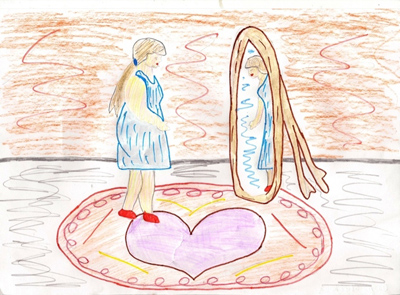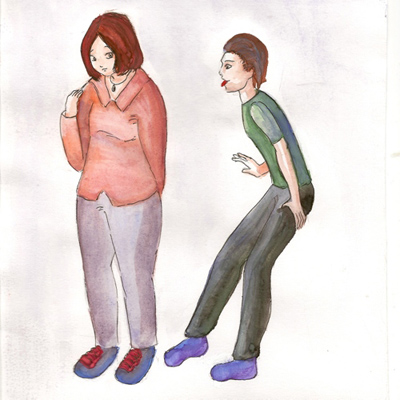One day a girl came to our class. Her name was Natalia. We
were in the fifth form. She was fat which seemed strange to us.
We did not understand how children could be like Natalia.
Perhaps we thought like that because of our young age. We
began to give her unpleasant nicknames.

Of course she did not like it. It hurt her. Natalia cried very
often. The girls were sorry for her but the boys weren’t. The boys
were cruel.
Get the Flash Player to see this player.
Natalia’s mother came to school to talk to our teachers. She
asked them to help her daughter to protect her from her
schoolmates. During our class meetings the teacher led us in a
discussion of this problem.

After that some classmates stopped doing it but some boys
continued to hurt her. Later we saw that Natalia was a very kind
girl. She was always ready to help us. Natalia is still in our class.
We made friends with her. I always say, “Fat doesn’t mean bad.”
Exercises
I. Understanding the Story
What do you think is the main idea?
1. It is terrible to be different from other people in your class.
2. Natalia said bad things about the other children.
3. It is all right to be different.
II. Vocabulary
With a partner, answer these questions.
1. unpleasant: What things do you consider unpleasant?
2. nicknames: Share nicknames in your family or among your
friends.
3. cruel: Remember and share a time when you saw someone
being cruel.
4. protect: What does it mean to protect something or someone?
III. Now you Talk
1. Describe Natalia's situation.
2. Are boys more likely to tease others than girls are? If so, why?
3. What suggestions would you give to Natalia?
IV. Now you Write
1. Write a letter from one boy to Natalia saying you are sorry.
2. Write an email from Natalia to a friend.
V. Role Play
1. Natalia and her mother: Natalia doesn't want to go to school.
2. Natalia and the writer: They talk to each other.
3. The writer and two boys: They argue about teasing Natalia.
4. The writer and her father: They talk about Natalia's problem.
5. The writer and Natalia: Two years later, they talk about the
teasing.> |

